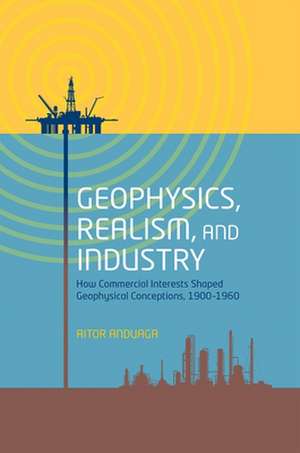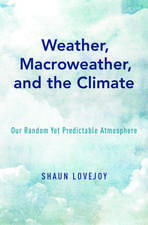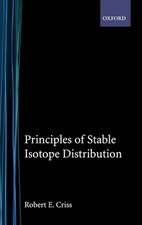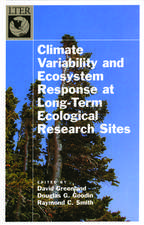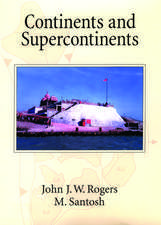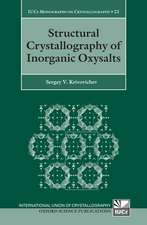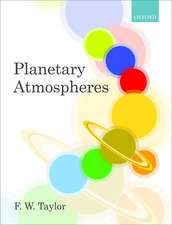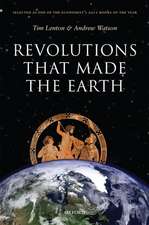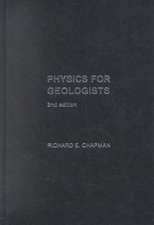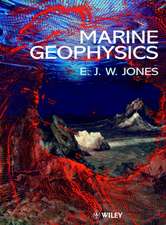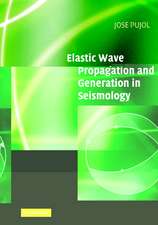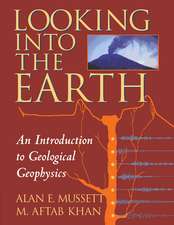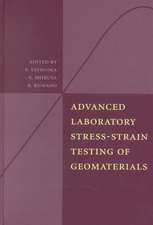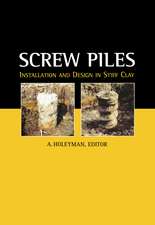Geophysics, Realism, and Industry: How Commercial Interests Shaped Geophysical Conceptions, 1900-1960
Autor Aitor Anduagaen Limba Engleză Hardback – 17 dec 2015
Preț: 497.33 lei
Preț vechi: 708.38 lei
-30% Nou
Puncte Express: 746
Preț estimativ în valută:
95.18€ • 98.100$ • 78.57£
95.18€ • 98.100$ • 78.57£
Carte tipărită la comandă
Livrare economică 03-09 aprilie
Preluare comenzi: 021 569.72.76
Specificații
ISBN-13: 9780198755159
ISBN-10: 0198755155
Pagini: 358
Dimensiuni: 181 x 251 x 25 mm
Greutate: 0.75 kg
Editura: OUP OXFORD
Colecția OUP Oxford
Locul publicării:Oxford, United Kingdom
ISBN-10: 0198755155
Pagini: 358
Dimensiuni: 181 x 251 x 25 mm
Greutate: 0.75 kg
Editura: OUP OXFORD
Colecția OUP Oxford
Locul publicării:Oxford, United Kingdom
Recenzii
To the best of my knowledge, this book is the first historical study of its genre. It ought to be part of the education of any geophysicist, academic, or industrial. Students and professionals are bound to gain invaluable insights from the study of this work.
This work will interest historians and philosophers of geophysics ... Recommended.
Anduaga presents a challenging, deeply informed analysis of the effects of commercial interest on the content of 20th-century science. The global sciences of radio propagation and seismic study of Earth's interior provide the scenes for his critique of realism and its social/cultural origins in commercial science. This book provides essential background and tools for historians of modern global science.
Remote sensing is a severely underdeveloped fertile ground for historians of science and technology to explore important philosophical, technical, conceptual, social, and political issues. Anduaga's Geophysics, Realism, and Industry breaks the ice and further advances the area by comparing the development of radio ionospheric propagation with that of crustal seismology in the twentieth century. For readers interested in the complex interplay between ontology and industry in light of a new experimental technology, this book is highly recommended.
Anduaga takes readers on a journey through important but little-explored realms of twentieth century geophysics. A must-read for those interested in the rise of the modern earth sciences.
There are a number of useful tables, including chronologies of key theoretical developments in each case study, and several helpful graphic illustrations of various models drawn from historical sources.
This work will interest historians and philosophers of geophysics ... Recommended.
Anduaga presents a challenging, deeply informed analysis of the effects of commercial interest on the content of 20th-century science. The global sciences of radio propagation and seismic study of Earth's interior provide the scenes for his critique of realism and its social/cultural origins in commercial science. This book provides essential background and tools for historians of modern global science.
Remote sensing is a severely underdeveloped fertile ground for historians of science and technology to explore important philosophical, technical, conceptual, social, and political issues. Anduaga's Geophysics, Realism, and Industry breaks the ice and further advances the area by comparing the development of radio ionospheric propagation with that of crustal seismology in the twentieth century. For readers interested in the complex interplay between ontology and industry in light of a new experimental technology, this book is highly recommended.
Anduaga takes readers on a journey through important but little-explored realms of twentieth century geophysics. A must-read for those interested in the rise of the modern earth sciences.
There are a number of useful tables, including chronologies of key theoretical developments in each case study, and several helpful graphic illustrations of various models drawn from historical sources.
Notă biografică
Aitor Anduaga is an Ikerbasque research professor at the Basque Museum of History of Medicine and Science, University of the Basque Country, Spain. He holds a Ph.D. in physics and a bachelor in philosophy. He has been a visiting scholar at the Universities of Oxford, Sydney, Montreal and Toronto, the Max Planck Institute for the History of Science of Berlin and the Smithsonian Institution of Washington. He has published extensively on the social history of geophysics, physics and technology. His main work is: 'Wireless and Empire: Geopolitics, Radio Industry and Ionosphere in the British Empire, 1918-1939' (Oxford University Press, 2009).
